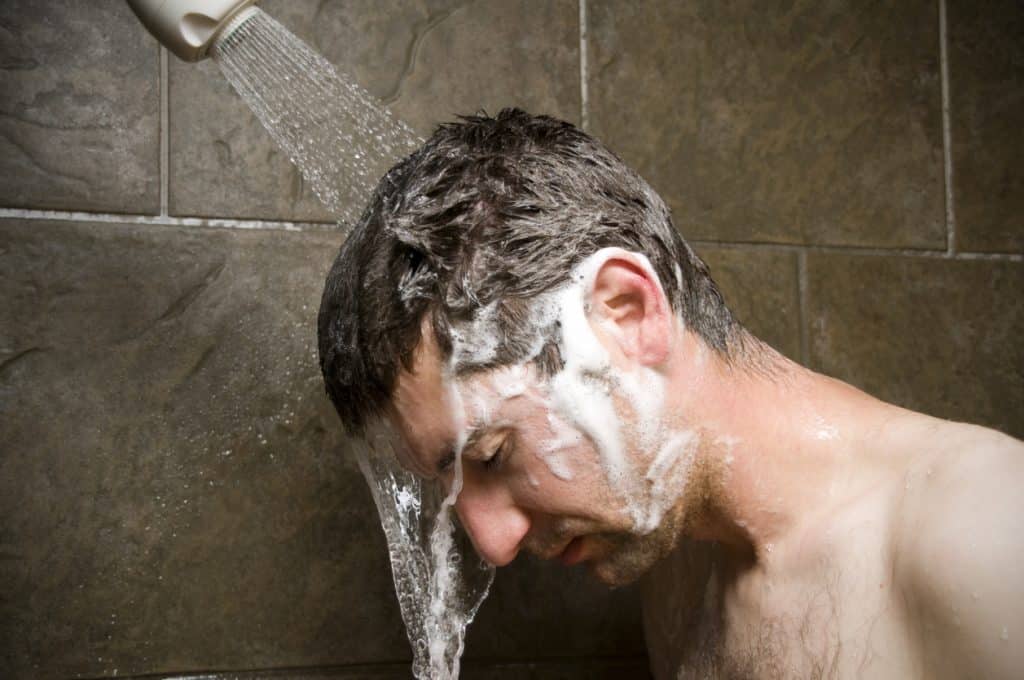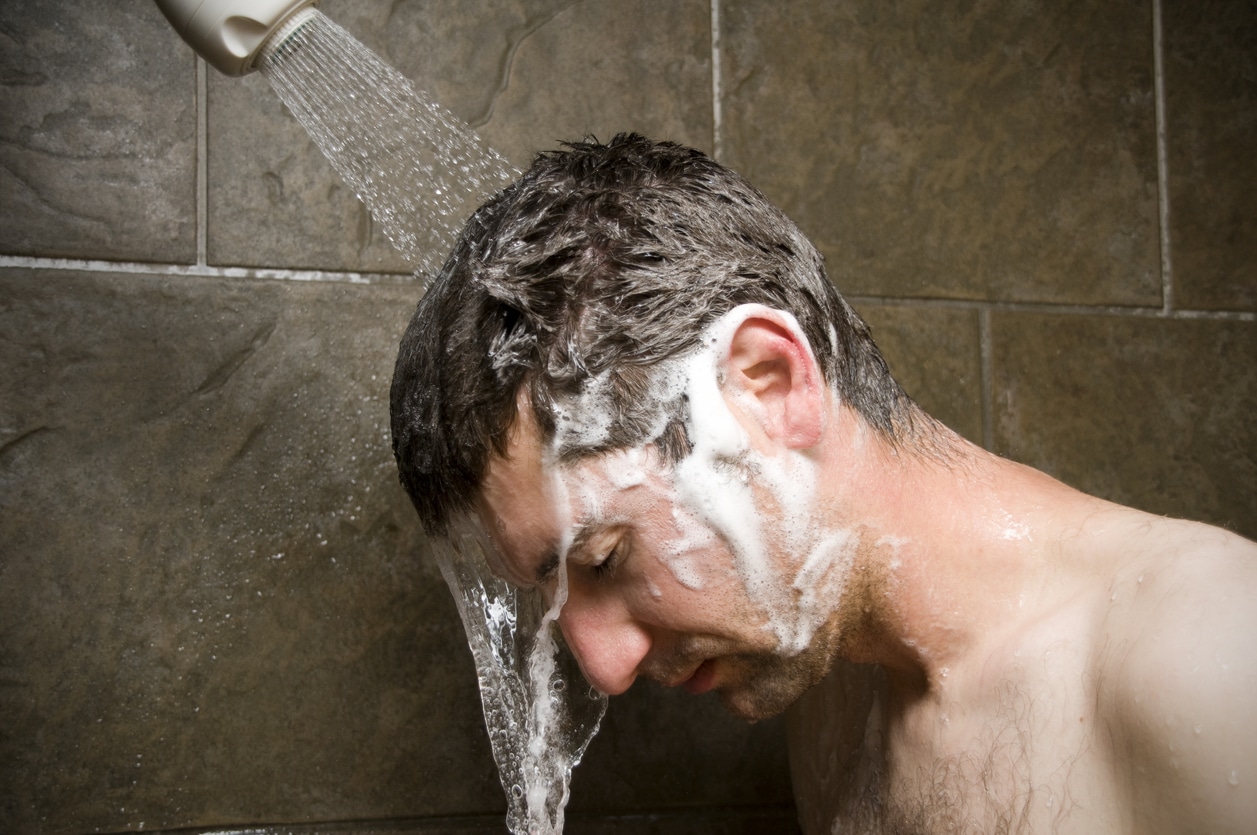Have you ever had a shower and then felt extremely exhausted afterwards? There’s a scientific reason for that. In this blog post, we’ll explore why taking showers can sometimes make us feel sleepy and what we can do to combat that feeling.
What is the science behind why we get sleepy after taking a shower?
1. Body temperature
Believe it or not, there’s a scientific explanation for why you might feel tired after taking a shower. It has to do with the change in temperature that your body experiences. When you first get in the shower, the warm water raises your core body temperature. But once you get out of the shower and dry off, your body starts to cool down again. This sudden drop in temperature can trigger fatigue and make you feel sleepy.
2. Relieves Muscle Tension
Another possible reason for why you might feel sleepy after taking a shower is because showers can help to relieve muscle tension. When you’re stressed, your muscles tend to tighten up, which can lead to pain and fatigue. By taking a warm shower, you can help to relax your muscles and ease any tension that might be built up. As a result, you might feel more relaxed and less stressed, which could lead to feelings of sleepiness.
3. Relieves Stress
Finally, another explanation for why you might get sleepy after taking a shower is because they can be an effective way to relieve stress. If you’re feeling overwhelmed or anxious, spending some time in the shower can help you to clear your mind and relax. Once the source of your stress has been relieved, you might find yourself feeling ready for a nap. This is one of the main reasons why reading makes you sleepy.
4. Dehydration
When you step into a hot shower, it’s not just the heat of the water that can make you feel sleepy. The fact is, showers can actually contribute to dehydration – and that can leave you feeling tired and groggy. When you sweat, your body loses not only water but also essential electrolytes like sodium and potassium. In a hot shower, you can actually sweat quite a lot without realising it, and this can lead to dehydration. The loss of electrolytes can cause fatigue, muscle cramps, and even dizziness. So if you’re looking to beat fatigue, it’s best to stick to cooler showers. Not only will they be better for your skin, but they’ll also help you stay hydrated – and that means more energy for the things you love.
Sweating without realising it is one of the reasons why swimming is more tiring than running.

Hot vs. Cold Showers: Which One Is Better for Sleep?
Hot:
A good night’s sleep is important for overall health and well-being, but it can be hard to get the recommended seven to eight hours of shut-eye per night. One way to improve sleep quality is to take a warm shower or bath before bed. A meta-analysis of 17 studies found that taking an evening shower or bath in water between 104 and 108.5 degrees Fahrenheit improves sleep quality. The findings suggest that a warm bath or shower before bed can help people fall asleep faster and stay asleep longer. So if you’re struggling to get a good night’s rest, consider taking a warm shower or bath before turning in for the night.
Immersing your hands and feet in warm water can actually help to cool down your entire body. The researchers hypothesize that warm water stimulates blood flow to the hands and feet, and that this then causes body heat to escape and reduce more quickly. This process is known as convective heat loss, and it helps to regulate our internal body temperature.
One simple way to encourage sleep is to bathe or shower one to two hours before bedtime. The act of bathing or showering helps to relax the body and prepare it for sleep. The warmth of the water from your nighttime shower helps to soothe muscles and ease tension, while the act of washing away dirt and sweat can help to clear the mind. In addition, the regular practice of bathing or showering before bedtime can help to establish a healthy sleep routine. As a result, those who make time for a pre-bedtime bath or shower are likely to find it easier to fall asleep and get a good night’s rest.
Cold:
Cold showers seem to be the go-to recommendation for those who want to feel more awake during the day. One study found that exposure to cold temperatures can lead to an increase in cortisol levels. Cortisol is often referred to as the “stress hormone” because it is released in response to stress. Another study found that increased levels of cortisol at night may lead to poor sleep. So, if you are looking to get a good night’s sleep, a cold shower before bed may not be your best bet.
Instead, take a cold shower when you want to feel more alert and refreshed, such as in the morning before starting a busy day. Cold showers can help to increase your heart rate, stimulate blood circulation, and wake up the body. This can be especially helpful in place of an afternoon coffee or energy drink. Taking a cold shower can also help to reduce inflammation, improve mood and reduce stress – all important factors for overall wellbeing.
Overall, it’s best to take warmer showers before bed to help you relax and get a good night’s sleep whereas your morning shower should be cooler. Cold showers can be taken earlier in the day for an energizing boost. Either way, make sure to stay hydrated throughout the day and to drink plenty of fluids after your shower or bath – this will help to ensure that your body is functioning at its best. With the right combination of temperature and timing, you can ensure that your showering routine is helping to improve your sleep quality and overall health.
How can I avoid getting sleepy after taking a shower?
1. Take a cool water shower:
While a hot shower might feel good in the moment, as your core body temperature drops afterwards it can leave you feeling tired and sluggish. To avoid this, turn the dial to cooler temperatures—you might even want to try taking an occasional cold shower for a quick energy boost. The shock of cold water will not only help wake you up, but it also has some amazing health benefits.
2. Turn the temperature down one minute before the end:
This trick works especially well if you typically take hot showers. As your skin starts to prune and you start feeling relaxed, turn the heat down so that your last minute is spent cooling off instead of heating up. This will help prevent that sudden drop in temperature afterwards and leave you feeling more energized.
3. Drink more water throughout the day:
Even mild dehydration can leave you feeling fatigued, so make sure you’re staying properly hydrated by drinking lots of water throughout the day—not just after your shower. Start your day with a glass of water first thing in the morning and keep a water bottle with you so that you can sip on it throughout the day.
4. Change your soap:
Believe it or not, what kind of soap you use in the shower could be making you tired afterwards. Scented soaps often contain chemicals and synthetic fragrances that can have negative effects on your energy levels and sense of well-being. Opt for an all-natural soap instead and see if that makes a difference. Alternatively, choose an invigorating option such as naturally scented peppermint shower gel.
5. Take a quick walk
If you do find yourself having a relaxing shower and then needing to wake up afterwards, try taking a walk or have some gym time to give you an instant boost of feel good endorphins and leave you fully awake.
6 . Get enough sleep:
Sometimes post-shower fatigue is simply due to not getting enough sleep at night. Make sure you’re getting seven to eight hours of sleep each night and see if that helps reduce how tired you feel during the day—including after showers!
Conclusion: Why do I get sleepy after taking a shower?
Taking a hot shower can leave your body in shock from the sudden drop in temperature, leading to feelings of tiredness and fatigue. To avoid this, take shorter showers with cooler temperatures, drink plenty of water throughout the day, choose natural soaps and make sure you’re getting enough sleep each night. Doing these things should help reduce post-shower fatigue.
Remember that the key is to find the right combination of temperature and timing for you so that you can enjoy a refreshing shower without feeling sleepy afterwards.
